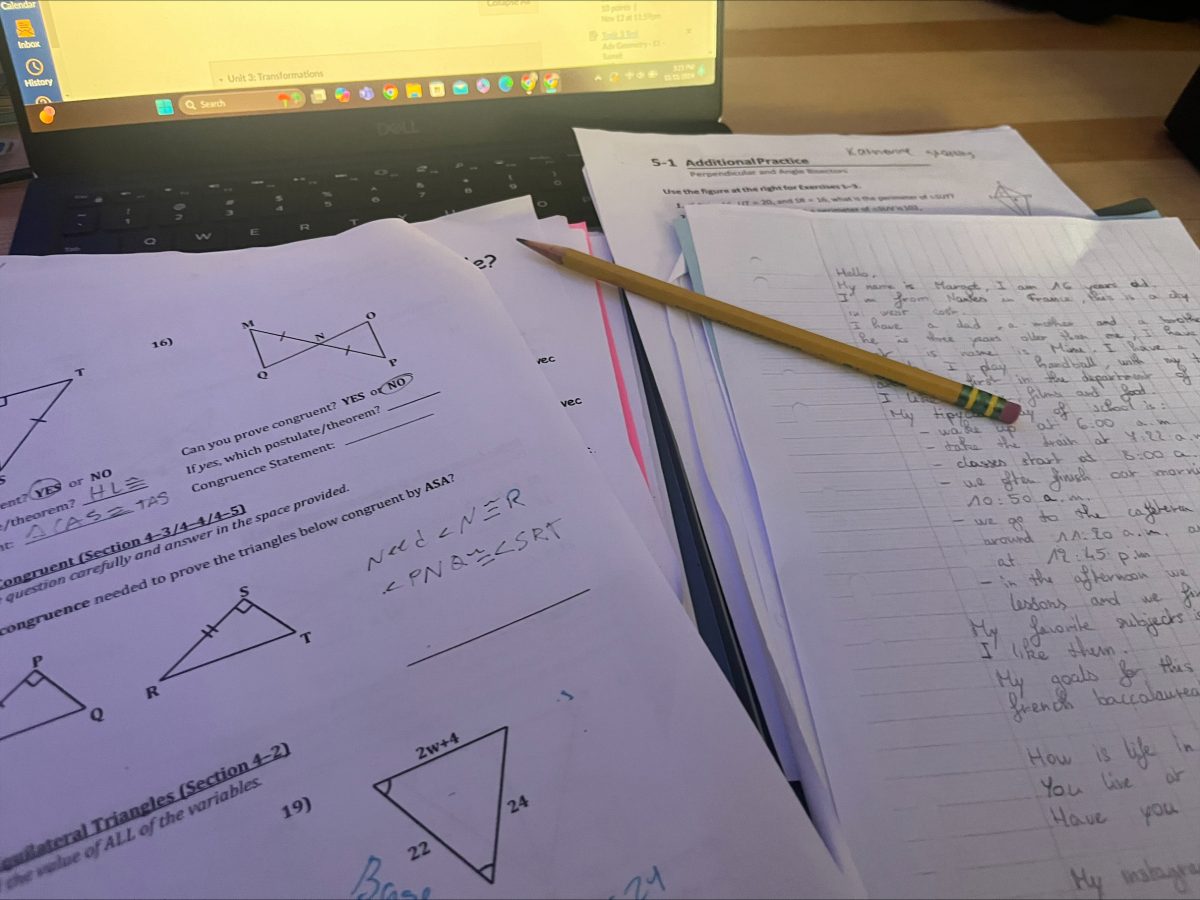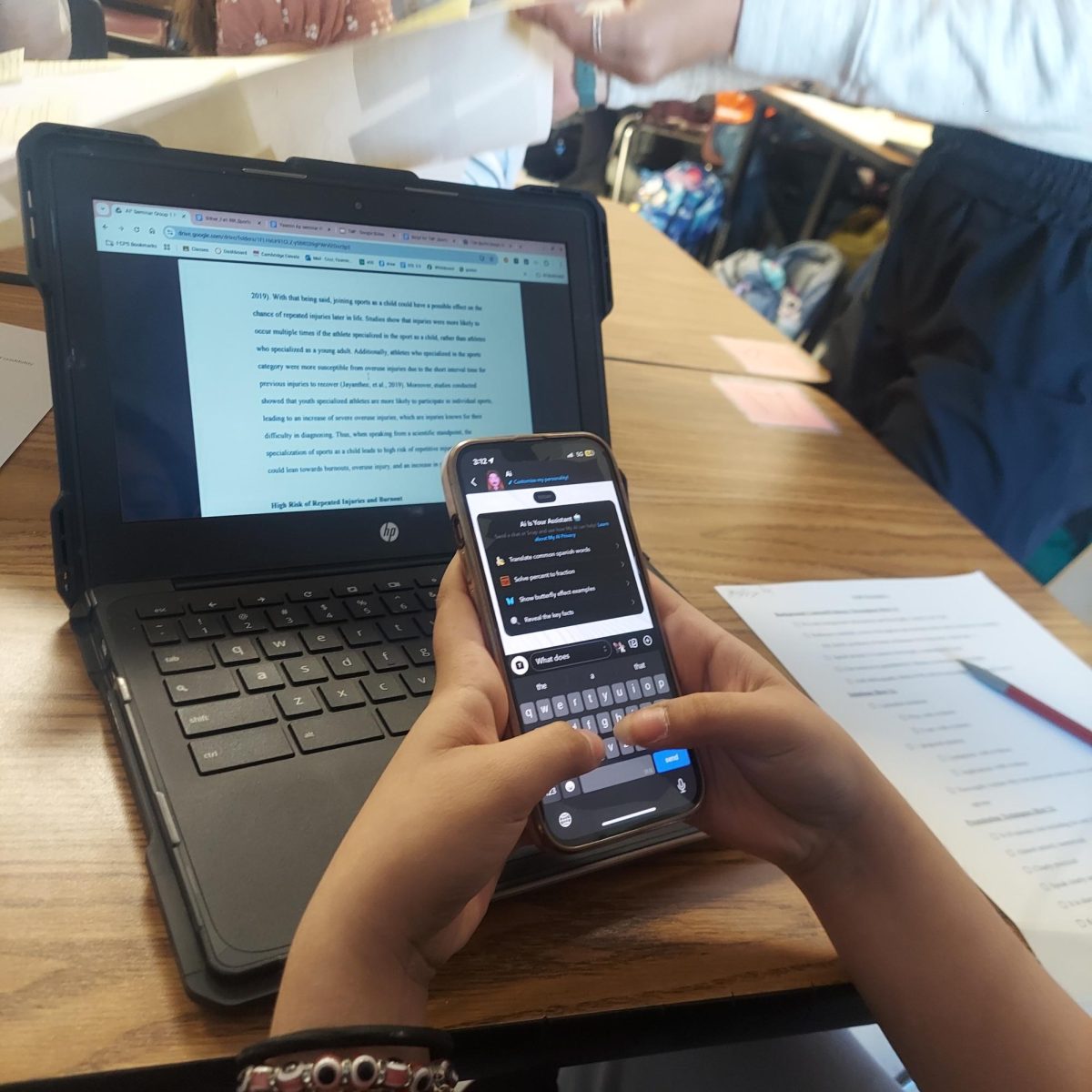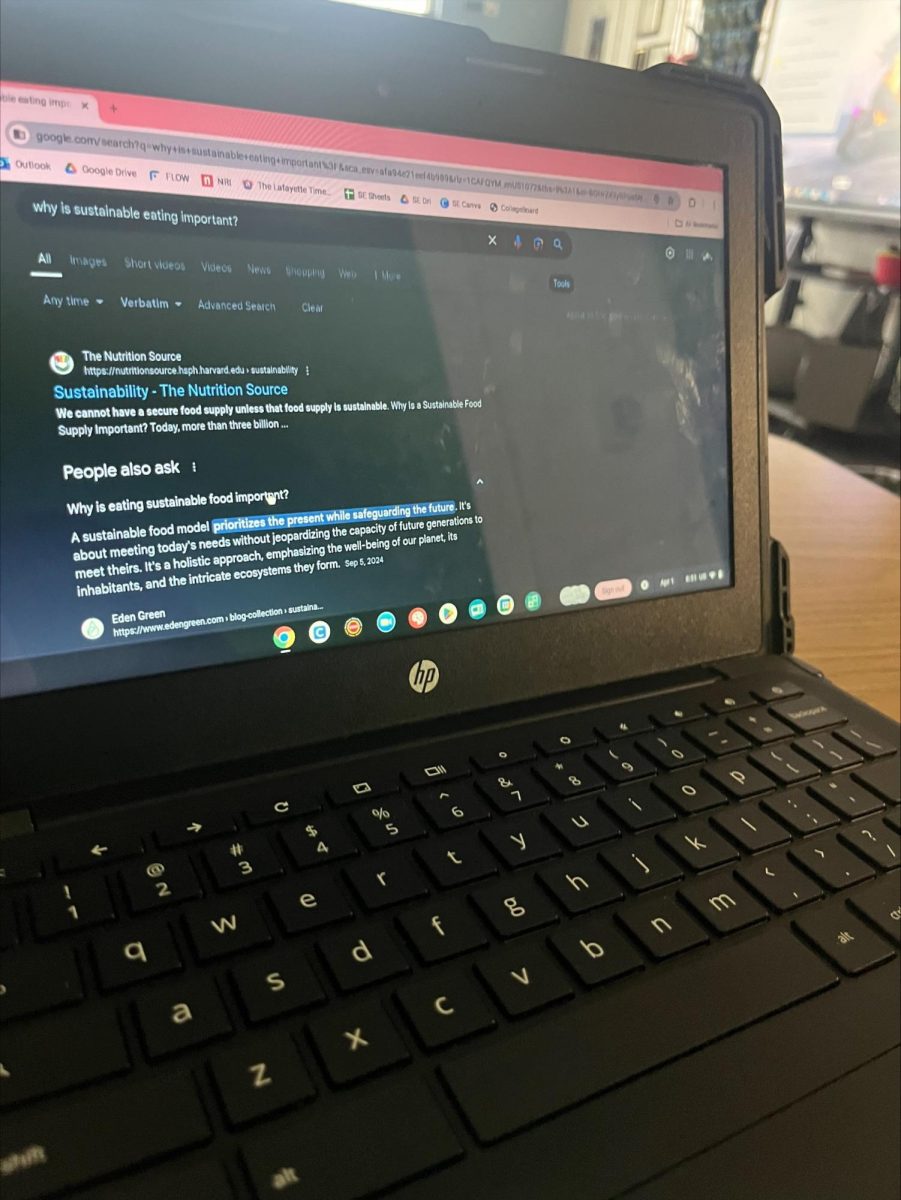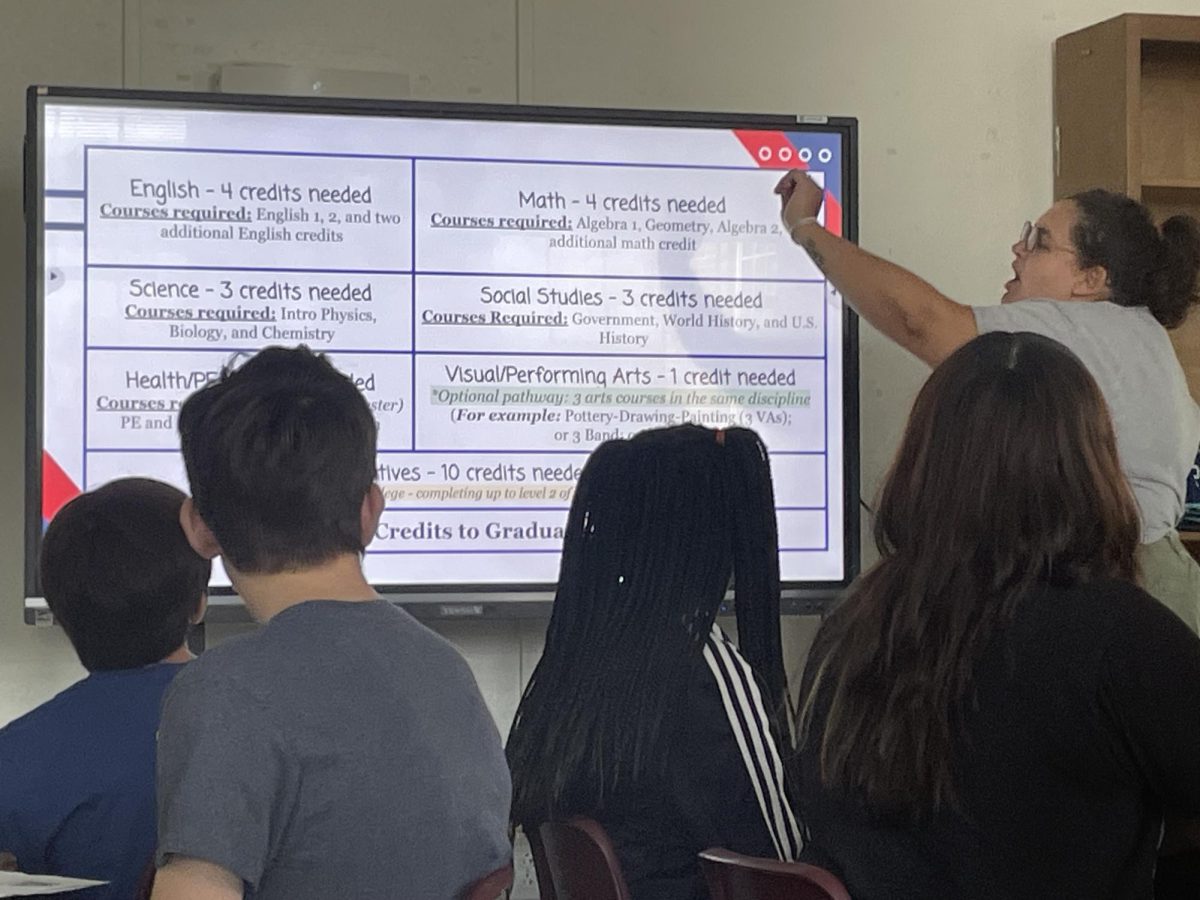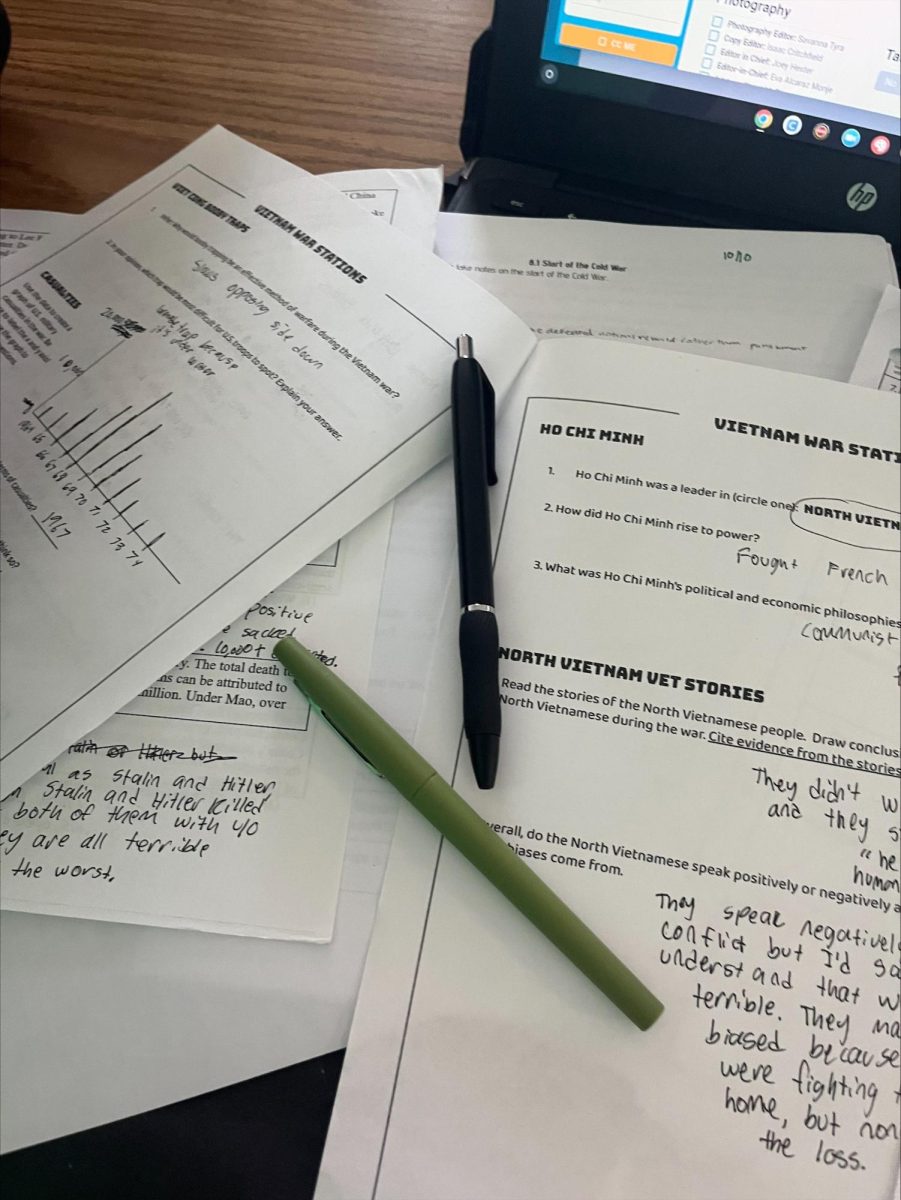It’s Sunday night, and you suddenly remember that you have an important math test tomorrow and a project due in English that you completely forgot about. You panic, frantically flipping through your math flashcards with one hand while trying to create a last-minute poster with the other. This is a stressful situation that many students can relate to and one that time management can help prevent.
Time management is one of the most valuable skills a student can develop, especially for those keeping up with extracurriculars, jobs, and social life. With so much on their agenda, students can feel overwhelmed trying to balance it all.
One of the first steps to good time management is setting priorities. Students can help organize their tasks using tools like planners, calendars, or to-do lists. Breaking down larger projects into smaller, manageable steps makes the workload seem manageable. Students could go through the assignments, sorting them from most important to least, and then tackle them one by one, with the hardest tasks done first.
Another key aspect of time management is avoiding procrastination. Whether students miss school or get distracted in class, it’s easy to get behind. Brody Antrobus, a sophomore at Lafayette exclaimed, “It’s crazy how fast you can fall behind just missing a day of school. Catching up feels like twice the work.” When all the assignments build up, many people ignore them until the last minute. While it’s easy to put off work and many students fall victim to it, delaying work leads to last-minute cramming. This can harm the quality of the work and increase students’ stress levels while working on it. Instead, setting aside dedicated time each day for studying can help students keep a healthy balance.
Setting smaller deadlines for yourself and breaking assignments down is essential.This can keep the quality of their work great, while also not overworking themselves. Often, getting started is the hardest part and once a student gets going it’s easier for them to continue.
In the end, effective time management not only leads to a better academic performance but also helps students feel at ease. By working efficiently, students feel more in control of their schedules. Learning these skills now, students can set themselves up for success not only in school but in future careers.

